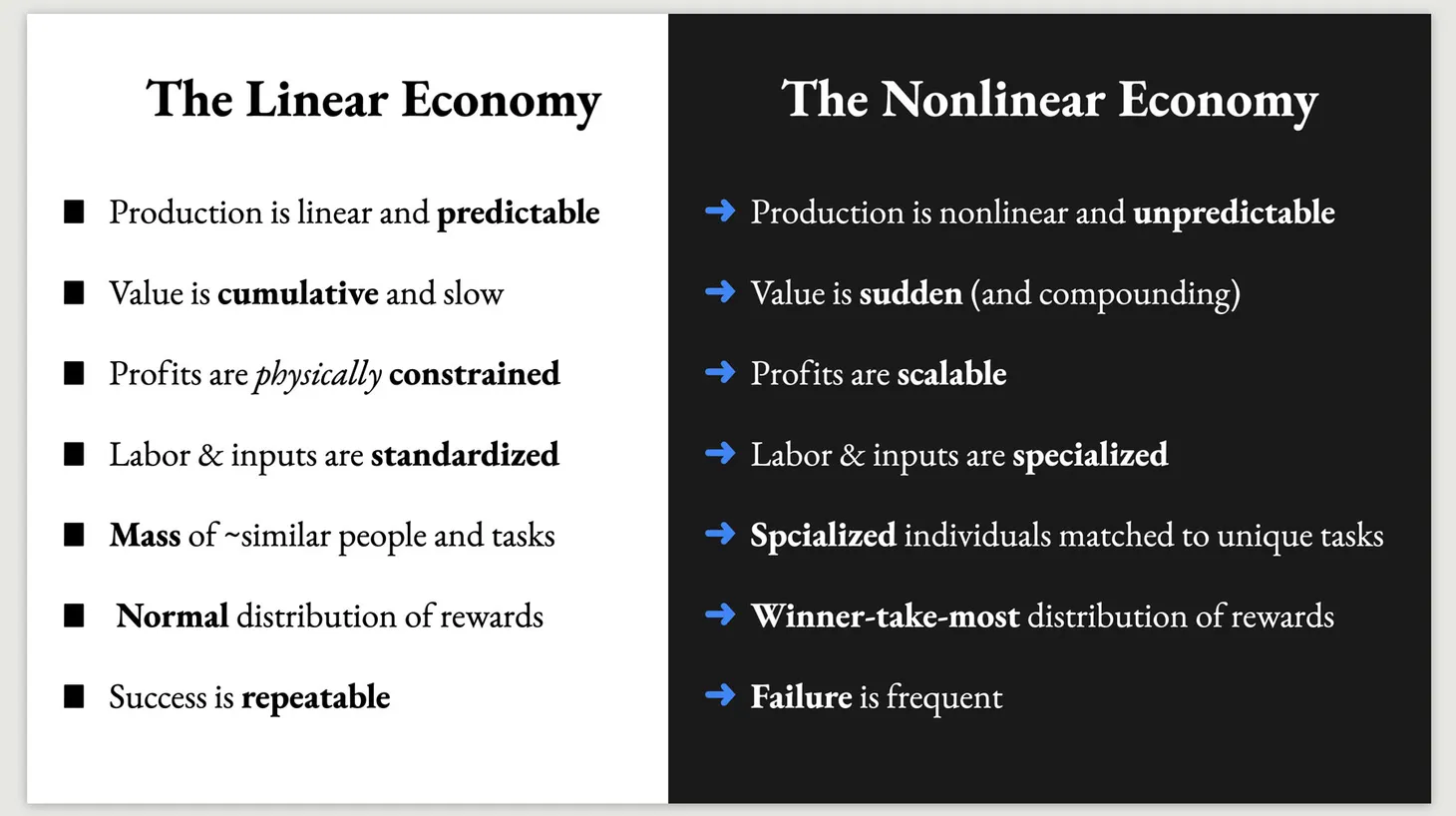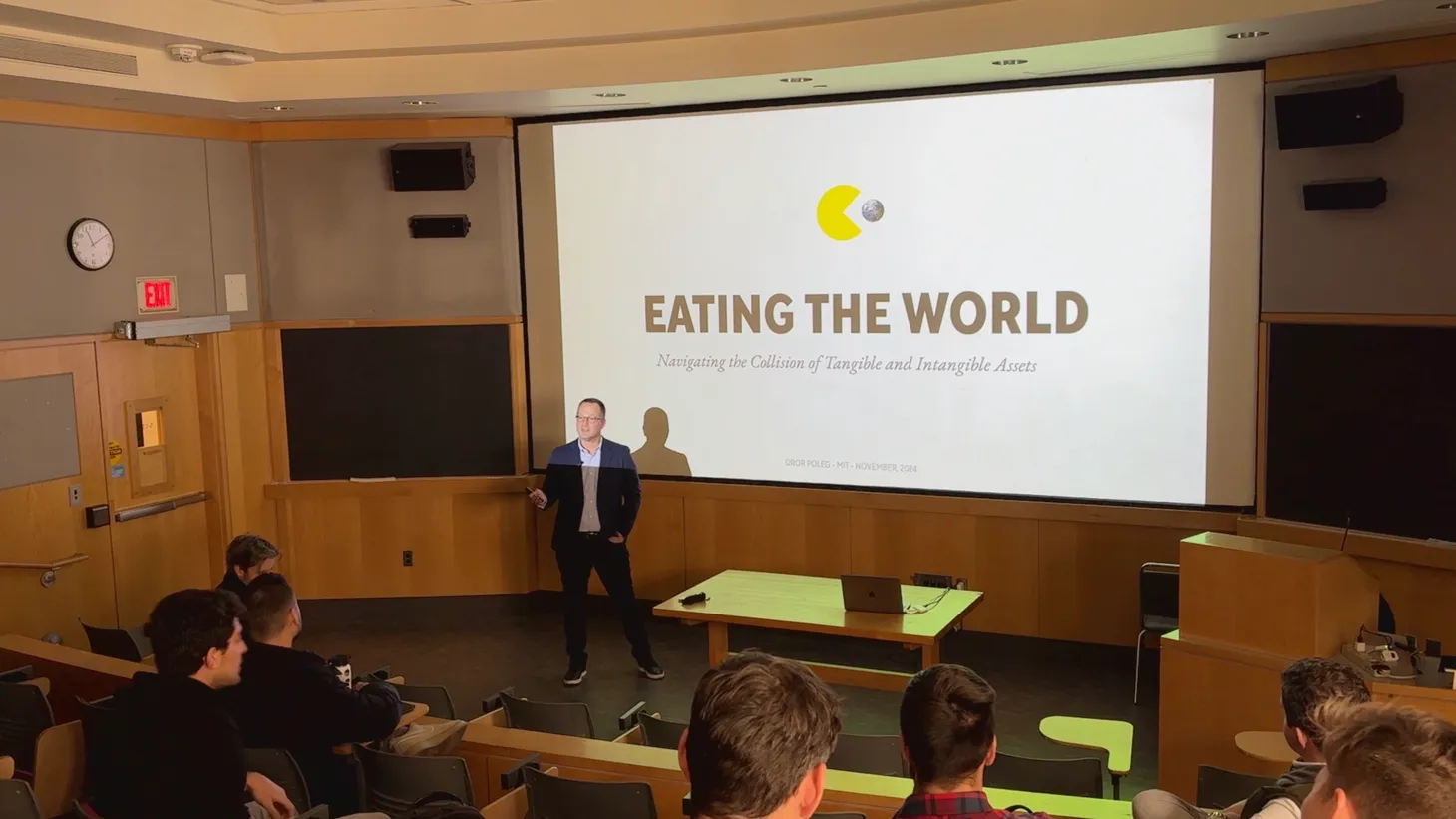Your Boss Has No Clue
Don't sacrifice your dog. Give your boss a hug.

🎧 The audio version of this article is available on Spotify, Apple Podcasts, and beyond.
It's not an office crisis. It's a crisis of work itself. Too many people, including senior executives, have no idea what they're doing and for what purpose. Covid forced us to answer a few simple questions, and we've been scrambling for answers ever since.
A few weeks ago, the CEO of Clearlink made headlines after celebrating the sacrifices of employees who were asked to return to the office. In a leaked excerpt from a corporate all-hands meeting, he said:
"I learned from one of our leaders that in the midst of hearing this message, he went out and sold his family dog...
[this] breaks my heart as someone who's been, you know, at the head of the humanization of pets movement in other businesses that we've built. But truly, those are the sacrifices that are being made, and I honor you for those sacrifices. "
Indulge me for a moment, read that quote again, and pay attention to every word. This isn't English. It is a form of corporate poetry that must be dissected. Upon close reading, it conveys aggression and delusion and manipulation. And, perhaps most of all, it conveys confusion.
Let's start at the beginning. "I learned from one of our leaders." He could have just said, "somebody told me." But he "learned" from one of "our" "leaders." He is humble, you see. When someone tells him something, he "learns." And he is leading a joint effort, which is why, when speaking to his subordinates, he refers to their middle managers as "our leaders" and not "your bosses."
And then there's the dog. That person didn't just sell his dog. He sold his family dog. The use of "family" is there to intensify the sacrifice. That exemplary employee didn't just sell a dog; he sacrificed a family member.
Then the CEO says this breaks his heart. Wow. He prompted the "family" sacrifice and is now encouraging more people to make similar sacrifices, but it breaks his heart. Because you see, the CEO is not really the boss. He is just there in the trenches, fighting alongside the team against an implacable enemy that demands sacrifices of this kind. The boss has no agency or a vision of his own; he is only there to convey the message and offer sympathy.
To give more credence to his sympathy, the CEO points out that he's "been, you know, at the head of the humanization of pets movement in other businesses that we've built." Another gem. First, what does it even mean to be "at the head of the humanization of pets movement"? He presumes to have led the effort to make humans care about animals? (it's the same guy that just celebrated sacrificing a dog, yes?). He also implies that the effort to "humanize" pets has been a corporate endeavor, not a social or cultural shift — because nothing exists outside the company. And then there's the "we" again — "businesses we've built." The boss is sharing the credit with his listeners, who, in fact, had nothing to do with that business. He does this to make them feel part of something good, benevolent, and essential. And to top the manipulation, he "honors them for these sacrifices."
My 3.5-year-old daughter would have seen through this BS. No wonder people aren't engaged at work. What was this guy even talking about? What does he actually want?
My guess is he has no idea. That's what I thought when I heard that speech. And soon enough, more evidence emerged to corroborate that assumption.
A few days after the original leak, a longer excerpt was published online, diving into more specific aspects of the business. The CEO seemed worried about two conflicting trends: employees doing nothing and employees doing too much. The first problem, as he put it:
"One month this year, I got data that about 30 of you didn't even crack open their laptops. And those are all remote employees, including their manager. For a whole month! How could that be in a company where we're doing our very best? And what does that say about us as a company? And that they're still here, they're still employees. None lost their jobs over this."
Beyond the comic value, get what he is actually saying: Lots of people aren't working. Their managers aren't working. I am the CEO. I am aware of it. And all these people are still employed and getting a paycheck.
Once again, we find no evidence of leadership. No one is in charge. The CEO is just here to relay what's going on and sympathize with the rest of the team for how unfair it all is. He concludes this section with a passive-aggressive flourish:
"That's not to say that they're not working at all, but those are not great indicators."
In other words, in case anyone suspects the CEO has an actual point of view, he immediately reassures us this is not the case. People didn't open their laptops for a whole month. "Those are not great indicators." That's quite an understatement.
As mentioned above, people not working is only half of the problem. The other problem is people who are doing too much, too quickly. In the CEO's words:
"Some of our developers could be working for two different companies. We don't know. We hope that's not the case, but we don't know. Many content writers are now exclusively using AI to write. I can do that in about 30 minutes of an 8-hour workday. So what do we need to do? Let's put out 30 to 50 times our normal production, or substantially more of our production."
Again, read it word by word and see what this man is saying: People working remotely are more productive than ever, particularly with the help of AI. He also admits that he and his managers have no idea what people are doing or what's going on. Of course, he throws in an arrogant remark claiming he could do it all on his own "in 30 minutes" — all while begging people to stay at his company and return to the office. The bottom line remains the same: It's not clear what this boss actually wants. Does he want people to be more productive, or does he want them to return to the office so he'll know what they're doing?
This feels more about control and desperation than about productivity and profits. The needs of the boss and the needs of the offices themselves clash with the needs of the actual business, let alone the needs of the overall economy. If people can perform three jobs at a time — let them! We'll all be richer for it.
The notion of forcing people to work for 8 hours and complete an average number of tasks seems more ridiculous with every passing day. And the illusion that offices make it easier to control or monitor people is precisely that — an illusion. Even before Covid, executives and HR leaders in the most innovative companies acknowledged that they had no idea how productive their employees were. The primary method to gauge productivity was to conduct a survey that asked employees whether they felt productive.
And figuring it out is not getting any easier. A new report by Rani Mola shows how "your boss is obsessed with productivity without knowing what it means." Rani interviewed employees and executives to determine how they define and measure productivity. Her conclusion:
"not only does nobody know how to measure productivity, we’re also not even sure it’s the most important way to predict success"
If you've been reading my newsletter for a while, all this is old news to you. AI and remote work enable some employees to scale their output to an unprecedented degree. We live in a non-linear economy where the relationship between input and output is increasingly unclear. Nobody knows what's going on because there's simply no way to know. No one is in charge because there is nothing to be in charge of. We are all ants running around in different directions in an effort to find some sugar. It doesn't mean our work is meaningless, but it means we must operate under growing uncertainty.
Welcome to the 21st Century. We're all throwing spagthetti at the wall. pic.twitter.com/dSvcKrZaYw
— Dror Poleg (@drorpoleg) May 5, 2023
That boss in that video is not a villain. His agency is truly limited. He should not be ridiculed (ok, maybe he should). But he shouldn't be listened to, either. The correct response to his rant is to give him a hug. Tell him everything is going to be ok. We are all in this together. He can even keep his dog.
This does not mean that bosses have nothing left to do. They should encourage experimentation, embrace a diversity of workstyles, and give people the confidence to try new stuff. This is true for companies and whole countries and planets.
There's never been a more interesting time to be alive. You can't stem the tide. You must jump in.
Happy Monday!
Best,

Oh, and speaking of jumping in — what do you know about AI? What can it do for you? Later this month, I will be teaching a Hype-Free AI Course— providing a practical introduction to the tools and trends reshaping the world of work. Come see what it means for your business or career. Click here to learn more and sign up.

Dror Poleg Newsletter
Join the newsletter to receive the latest updates in your inbox.




